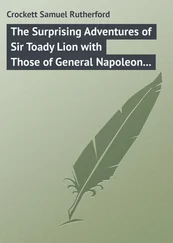Samuel French - Two Wars - An Autobiography of General Samuel G. French
Здесь есть возможность читать онлайн «Samuel French - Two Wars - An Autobiography of General Samuel G. French» — ознакомительный отрывок электронной книги совершенно бесплатно, а после прочтения отрывка купить полную версию. В некоторых случаях можно слушать аудио, скачать через торрент в формате fb2 и присутствует краткое содержание. Жанр: foreign_antique, foreign_prose, на английском языке. Описание произведения, (предисловие) а так же отзывы посетителей доступны на портале библиотеки ЛибКат.
- Название:Two Wars: An Autobiography of General Samuel G. French
- Автор:
- Жанр:
- Год:неизвестен
- ISBN:нет данных
- Рейтинг книги:4 / 5. Голосов: 1
-
Избранное:Добавить в избранное
- Отзывы:
-
Ваша оценка:
- 80
- 1
- 2
- 3
- 4
- 5
Two Wars: An Autobiography of General Samuel G. French: краткое содержание, описание и аннотация
Предлагаем к чтению аннотацию, описание, краткое содержание или предисловие (зависит от того, что написал сам автор книги «Two Wars: An Autobiography of General Samuel G. French»). Если вы не нашли необходимую информацию о книге — напишите в комментариях, мы постараемся отыскать её.
Two Wars: An Autobiography of General Samuel G. French — читать онлайн ознакомительный отрывок
Ниже представлен текст книги, разбитый по страницам. Система сохранения места последней прочитанной страницы, позволяет с удобством читать онлайн бесплатно книгу «Two Wars: An Autobiography of General Samuel G. French», без необходимости каждый раз заново искать на чём Вы остановились. Поставьте закладку, и сможете в любой момент перейти на страницу, на которой закончили чтение.
Интервал:
Закладка:
I replied that I would leave immediately. While at Troy I met Gen. Wool. He had come home from Buena Vista. He had some friends to meet me at a dining, and I remember his pun on a young lady to whom I was presented, "Miss Hart, one of deer family." The battery was shipped on a canal boat to Buffalo. I went by train. Stopped in Rochester all night. The next morning, October 16, the ground was covered with snow, which made me apprehensive that the navigation by canal would close in Ohio before I could reach there. When the steamer arrived at Cleveland the water had been let out of the canal, so we went on to Toledo. From there I went on to Cincinnati by passenger boat. I was the only passenger, except local ones getting on and off along the route. Toledo was no town at all, and the sidewalks were "paved" with gunwales of barge boats, and here and there a plank, and the mud!
I remained in Cincinnati during the months of November and December idle, awaiting orders. There were many parties given, and the society people were pleasant and accomplished. During the day, however, nearly all the men were busy, and I used to say there were but three young men idle in the city – Grosbeck, Febiger, of the navy, and myself.
Early in January, 1848, Senator J. D. Westcott informed me that the President had appointed me captain and assistant quartermaster, and sent my name, among others, to the Senate for confirmation.
The commission is dated January 12, 1848. I had been in the service only four and a half years and had received six commissions – viz., brevet second lieutenant, United States army; second lieutenant, Third Artillery; brevet first lieutenant, United States army; first lieutenant, Third Artillery; brevet captain, United States army; and captain and assistant quartermaster in the general staff of the army, outranking some officers that had been from twelve to eighteen years in service. The brevets were bestowed for "gallant and meritorious services at the battles of Monterey and Buena Vista, Mexico."
When I was informed of the appointment I went up the river to Brownsville, Pa., thence to Cumberland, Md., by stage. The weather was intensely cold. Snow covered the plains and the mountains, and travel had made the roads very smooth and slippery. In going down Laurel Mountain we barely escaped an accident. The stagecoach, when held back, would swing around on the icy incline and go down sideways, and to prevent this the driver gave reins to the horses and we were descending at a gallop, when turning a point we met an eight-mule team that had the inside track, leaving our driver just a possible space to pass. He measured the space and saw the danger instantly, barely missed the hubs of the enormous wagon, and, as he sheered in behind the wagon, our hind wheel on the right threw down the mountain side a quantity of earth, snow, and rocks. There were nine of us in the coach, which gave us the privilege of stopping at night. A member of the Senate from Missouri was opposed to the delay; he must be in Washington, and so the party was divided. The narrow escape from death settled the matter, for when we got out for supper no one said to the driver: "We will go on to-night."
On arriving in Washington I was ordered to report to Gen. Thomas S. Jesup, Quartermaster General of the army. He received me courteously, but observed in a pleasant manner: "Capt. French, neither you nor Capt. Rufus Ingalls were recommended by me for appointment in my department; you were commissioned over officers that I recommended. Besides, the regulations of the army forbids any officer from becoming a captain and assistant quartermaster until he has been five years in service, and neither of you have been in the army five years."
It was suggested to him that experience was a slow but very good teacher; that one of his last appointees had not been in the field, while Capt. Ingalls and I had served nearly two years in Mexico, and from experience had derived some knowledge of the duties of officers of the department which should overbalance length of years of service in garrison at home, and that we should not be condemned before trial.
It is a remarkable fact that Gen. Ingalls was retained, from the beginning to the end of the war, as the chief quartermaster of the Army of the Potomac under its many commanders. It is proof of his great administrative ability.
CHAPTER VIII
Ordered to New Orleans – Baton Rouge – Col. W. W. S. Bliss – Maj. J. H. Eaton – Maj. R. S. Garnett – Taylor Nominated for President – Return to New Orleans – Ordered to Vicksburg – "Gen." McMacken, the Prince of Landlords – Bishop Polk – Sent to Mobile – Regular Army at East Pascagoula, Miss. – Gen. Twiggs and His Fiancée – Sail for Galveston – Galveston – Houston – Austin – Troops Sent to Establish Posts, now Cities – San Antonio – Death of Gen. Worth – El Paso – Return to San Antonio – New Orleans – Call on Gen. Twiggs – Twiggs and Tree – Sword Presented to Me – Dine at the President's – Death of President Taylor – Fillmore President – Capt. Ringgold, U. S. N. – Ordered to Louisville – Return to Washington – Col. Joseph Taylor – Gen. W. O. Butler – Maj. Gaines – Cincinnati – Salmon P. Chase.
I was ordered to report for duty to Col. D. D. Tompkins in New Orleans, and remained there some three months. From that city I was put on duty at Baton Rouge, La., where Gen. Taylor and his family were living at the barracks. Of his staff, Col. Bliss, Maj. Eaton, and Capt. R. S. Garnett were with him. One day I was walking down town with Mrs. Taylor and her daughter Bettie, when a steamer landed, and brought the news of the General's nomination for President. Mrs. Taylor expressed regret that he was nominated; said "he had honors enough;" but added, however, "Since he has become a candidate, I hope he will be elected, and if he be, I will not preside at the White House."
From Baton Rouge I went to New Orleans; thence to Vicksburg, Miss., July 4, 1848, to muster out of service the regiment of Mississippi riflemen commanded by Col. Reuben M. Davis. We lived at the Prentiss House, kept by that prince of landlords, Gen. McMacken, who always "cried" his bill of fare. He said that when he kept a hotel in Jackson, Miss., he was obliged to do so, because so many of the members of the Legislature at that time could not read the printed ones, and he continued it to the day of his death. He was exceedingly pleasing in manners. On one occasion, seeing a gentleman of a commanding presence enter the dining room and seat himself at the table, he welcomed him with: "Good morning, general." "That is not my title, sir." "Ah, excuse me, judge." "Mistaken again, sir." "Well, bishop, what will you be helped to?" "Why do you call me bishop?" "Because I am sure that you stand at the head of your profession, whatever it may be." That gentleman was Bishop Leonidas Polk, afterwards a Confederate general.
During the summer and fall there was yellow fever in Mobile and New Orleans; but no one regarded it, except to leave the cities at night if possible; during the day business went on as usual.
On my return to New Orleans I was ordered to Mobile, Ala., to take charge of government property, and to muster out a company of Alabama cavalry. This finished, I was kept there awaiting orders. In the meantime the army from Mexico had returned, and was encamped at East Pascagoula, and in September I was ordered there.
The evening I arrived there was a ball given at the hotel. I met there a young, tall, and pretty lady from Mobile, with whom I was acquainted. She personated the morning star. Leaving the "floor," she took a seat on a sofa beside Gen. Twiggs, and I seated myself on the other side of her. She declined several sets, and I remained talking with her. All the while the General said but a few words. The windows were open, and I felt some one on the gallery pull my hair. I went out to ascertain the meaning of it. Two or three officers came up, and said: "French, don't unpack your trunk; you will be ordered away in the morning. Don't you know that young lady is Gen. Twiggs's fiancée? He is as jealous as a Barbary cock." I mention this because of something hereafter.
Читать дальшеИнтервал:
Закладка:
Похожие книги на «Two Wars: An Autobiography of General Samuel G. French»
Представляем Вашему вниманию похожие книги на «Two Wars: An Autobiography of General Samuel G. French» списком для выбора. Мы отобрали схожую по названию и смыслу литературу в надежде предоставить читателям больше вариантов отыскать новые, интересные, ещё непрочитанные произведения.
Обсуждение, отзывы о книге «Two Wars: An Autobiography of General Samuel G. French» и просто собственные мнения читателей. Оставьте ваши комментарии, напишите, что Вы думаете о произведении, его смысле или главных героях. Укажите что конкретно понравилось, а что нет, и почему Вы так считаете.












